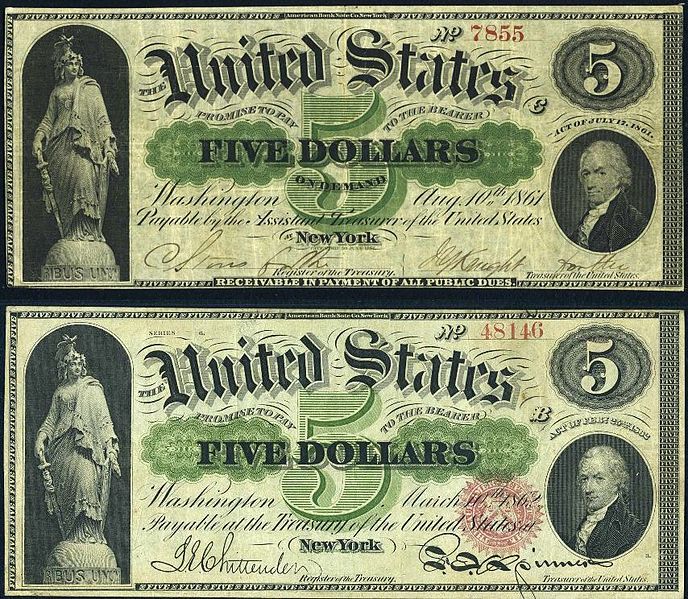When you’re a relatively new Republican representative from the South, there are lots of proposals you could make to burnish your credentials as a southern conservative. But some are more stupid and transparently reactionary than others. Case in point, Rep. Patrick McHenry (R-NC) is proposing that President Ulysses S. Grant be removed from the $50 bill, in favor of President Ronald Reagan. Now, we all know why Reagan: he’s the mythologized hero of the Right who don’t or won’t remember what they thought of him at the time. (For the record, McHenry was barely a teenager when Reagan left the White House, which explains a good deal.)
But why did he decide to go with the $50? His official (weak) reasoning:
President Reagan would be replacing President Ulysses S. Grant on the bill. In polls of presidential scholars, President Reagan consistently outranks President Grant. In 2005, The Wall Street Journal conducted one such poll of bipartisan scholars which ranked President Reagan 6th and President Grant 29th.
I’m deeply skeptical that this is the true reason… If you don’t remember your American History of the 1860s and 1870s, President Grant was the United States Army General who kicked Confederate butt all over the map and finally finished the Civil War in the Union’s favor… and then when he was elected President in 1868, he proceeded to implement a strong Federal Reconstruction policy in the South that protected the rights of liberated Blacks, cracked down and wiped out the original Ku Klux Klan, and implemented martial law in several Southern states until order was restored. Once Grant left office, most of his policies were immediately reversed by President Hayes as a result of the Compromise of 1877 that selected him as the winner on condition that he pull Federal troops out, which was the only force ensuring the policy’s implementation. Because of that policy, the Southern states in the post-Reconstruction period voted en masse for Democrats and against Republicans all the way until the 1960s, nearly a century later, when the Democratic hold began to slip as the national party began pushing for desegregation.
In the ensuing decades from the 1960s to the present, Republicans gradually reposition themselves as the more establishment-friendly/states’ rights party, and many Southern Democrats switched parties eventually to become Republicans. In many places, the lingering anti-Republican sentiment has continued to this day at a local level, with party switches being the only thing that finally turns a district to Republicans from conservadem/dixiecrat control. Ronald Reagan was a big factor in continuing Richard Nixon’s “southern strategy” to flip the South into a solid Republican bastion — that it is today — at the presidential level. So, this proposal is a win-win for reactionary Republicans stuck in the past down South: it dumps Reconstructionist Grant in favor of states’ rights Reagan.
Sean Wilentz, a history professor at Princeton who has actually even written a supportive book on Reagan, wrote an op-ed in the New York Times vigorously protesting McHenry’s proposal, giving many reasons why Grant deserves to remain on the fifty, instead of Reagan. He includes a lot of reasons I didn’t go over that were unrelated to Reconstruction and the Civil War, but I tend to think those are why McHenry wants to replace Grant. Wilentz makes a compelling case, additionally, that Grant’s reputation — which McHenry cites as reason for replacement — is the unjust result of extended character assassination after his death by pro-Confederate historians.
Fortunately, I don’t think McHenry has enough pull to make this go any place. Nevertheless, I think we should remain vigilant, since the Republicans did manage to use their majority a few years ago to quietly remove the Lincoln Memorial from the back of the penny.
This post originally appeared on Starboard Broadside.




